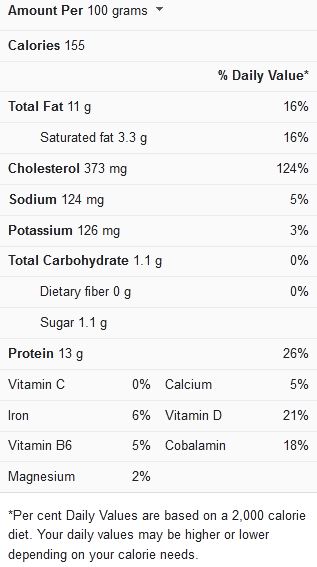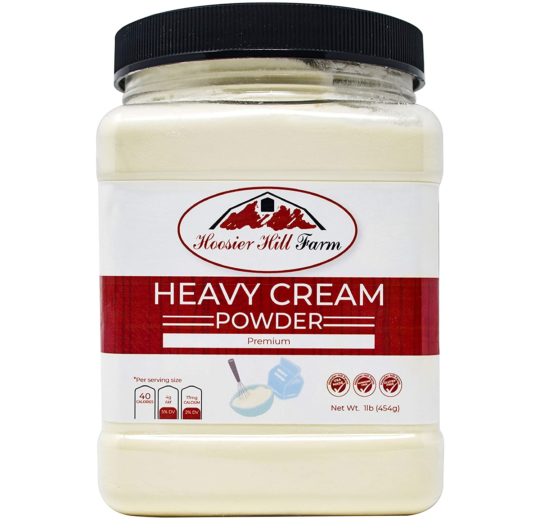There’s hardly anyone who doesn’t love eating breaded food. Breading adds a whole new dimension of flavor to different recipes, with a crunchy feel and delicious taste that is irresistible.
One of the magic ingredients that give breaded meals their overall effect is eggs. Eggs are wonderful and relatively difficult to forego in breading recipes due to the delicate crispness they impart into the entire recipe. But what happens if you run out of eggs just when you need them for breading?
Some options can work in place of eggs in breeding procedures. These options might not accurately mimic the effects of eggs in your breaded recipes but should come close enough. However, some of them might require extra effort in their use or entirely different methods, and these should be adhered to to obtain the best possible results.
Egg nutrition facts

What are eggs?
Eggs are the edible contents of a bird’s hard-shelled reproductive body. Chicken eggs, in particular, can be found in a variety of sweet and savory recipes, as well as in baked items. Scrambling, frying, poaching, hard-boiling, soft-boiling, omelets, and pickling are just a few of the most frequent ways to prepare eggs.
Separate from the yolk, the albumen (egg white) contains protein but little or no fat, and it can be utilized in cooking. Egg yolks are used as a thickening in custards and an emulsifier in the kitchen.
Egg whites are commonly used in sweets like meringues and mousse after being aerated or whipped to a light, fluffy consistency. The proteins contained in egg white enable it to create foams and aerated meals.
Uses of eggs in breading recipes
The method of covering food with a coarse crumble of starch before cooking is known as “breading.” This cooking method allows for numerous flavor qualities in the recipe in question, the most essential of which is a crunchy texture.
Eggs are very important in bread recipes because the yolks in the eggs give the batter a pale golden color and somewhat soften the gluten strands in the flour, giving the crust a more delicate crispness. The proteins in the eggs also assist the flour in producing a better moisture seal, which keeps the food more moist, and they also help the batter absorb less oil.
Some of the breading recipes that typically utilize eggs include the following:
- Breaded chicken cutlets
- Deep-fried breaded pork chops
- Breaded fish with chunky chips
- Breaded baked pork chops
- Breaded tofu
- Breaded tuna steak
- Crispy fried zucchini
- Breaded fish fillets
- Crispy breaded pork chops
- Crispy breaded tilapia
- Crispy fried shrimp
- Baked cod in breadcrumbs
- Breaded chicken breasts
- Baked breaded cauliflower
- Breaded beef
Substitutes for eggs in breading
Without eggs in breading recipes, the batter may be too thin or sticky, and the fish or meat may detach from the breading. However, although eggs can be considered the finest binder for fried meals, not everyone enjoys cooking with them. Some people are allergic to eggs, while others want a vegan alternative to bread.
Whatever the reason for needing a substitute, it is very much understandable. It is thus a good thing that there exist several suitable substitutes for eggs in breeding procedures, some of which are described below:
Augason farms butter powder
Butter is a basic and popular egg alternative when breading poultry or fish. It’s not always the healthiest option, but a low-fat, heart-healthy butter will work just as well.
Create your batter, as usual, then prepare your chicken or fish in butter. Rub the melted butter all over the meat, ensuring it’s completely covered. You don’t need much butter, but you should evenly distribute it after the meat has been rubbed down with butter, covered with batter, and fried as usual.
Butter is alright for a light coating but can’t handle a heavy batter covering. To keep the heavy coating from flaking off, coat the meat in melted butter first, then a thin layer of flour. Remove any surplus flour, and then add the batter coating. The flour helps the batter stick to the pan better, and the butter still does its job.
Heavy cream
Heavy cream works well as an egg substitute when breading for deep frying. It’s quite fattening, so that’s a negative, but it’s an egg-free choice for individuals who are allergic to eggs.
Dredging for a batter or breading coating is often done in three steps: first, cover the meat in flour, then in egg, and last in batter or breadcrumbs. Then, as the meat fries, the egg bonds the other ingredients to the meat, although you can similarly use heavy cream.
Heavy cream is a great alternative to bread crumbs or batters for retaining the bread crumbs or batter on the chicken or fis, and itt aids the outer layer’s adhesion more than almost anything else.
Gelatin
Gelatin works well as a dairy-free alternative. It won’t have the same impact as eggs or heavy cream because it’s not as sticky when cooked, but it’s a good substitute.
The advantage of using gelatin is that it does not affect the flavor of the batte, and that’ss a significant bonus because the meat or fish will still taste good. On the negative side, it can be rather challenging to deal with.
To begin, soak the gelatin in water for around five minutes to let it bloom. When the water begins to boil, add the gelatin and stir until it dissolves. Allow it to cool before using it to coat the meat.
Frequently asked questions (FAQs)
How do vegans breadcrumb without eggs?
Anything that makes what you’re breading sticky can be used instead of egg, and aA thin smear of mustard or vegan mayo would be enough. Another way to thicken it is to combine non-dairy milk with a few tablespoons of ground flaxseed or vegan mayo.
What is a vegan substitute for bread crumbs?
Almond flour has a nutty flavor and a coarse texture, making it a great substitute for bread crumbs. It’s also gluten-free, so this is an excellent choice if you have a gluten sensitivity or a special diet requirement.
Can you substitute nutritional yeast for breadcrumbs?
Nutritional yeast flakes can be used as a binder, topping, or coating in place of breadcrumbs. You may, however, want to use less than the amount asked for because the yeast will have a stronger flavor.
Conclusion
Although eggs can be considered the best binding agent when making fried meals, not everyone likes to cook with them. You might also happen to run out of eggs just when you need them for your breading recipes.
When this happens, look to our suggested options for the next best thing to use in place of eggs. These options might not provide the exact results as eggs but should suffice in a culinary emergency.



